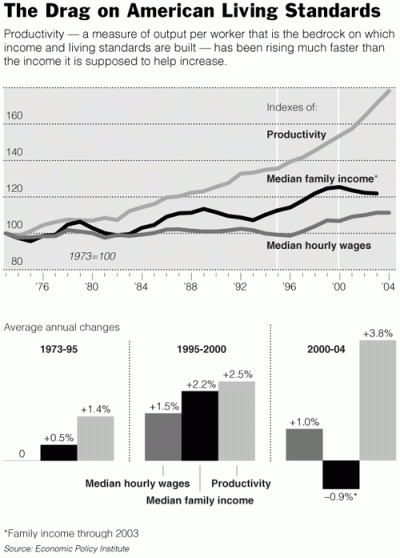I simply think there has been a rather significant divergence over the last 10-15 years that can't be sustained and can't really continue. I'd much prefer we address that by reversing the slide of the private sector instead of taking down the public sector, but we can't continue down the same road we've been following since the 1990s.
Unfortunately it's hard to make that point without many public sector pensioners and plan participants automatically assuming you are scapegoating *them* or feeling like you are trying to take something away from them. I won't deny that some folks are doing that, but wanting to advocate for the private sector isn't the same thing as wanting to take the public sector down. Hell, I'd love to have at least "held serve" in my real income instead of seeing it drop probably 12% in the last six years -- that would make it a lot easier for me to feel like I could still afford to allow others to hold serve, too. I'd prefer that a LOT more than seeing anyone else's benefits taken away or watered down.
In summary -- I don't know how we get there, but unless the slide of the private sector middle class can be reversed, I don't know how this issue can be defused.
I'm not sure how the middle class slide can be reserved or even to some extent if it should. As a nation we borrowed much more than produced over the last decade both individually and through the government.
The people who we borrowed the money from are roughly a billion folks in India and China, who 20 years ago were barely surviving on subsistence level agriculture. They have spent the last 10 year working very hard in factories, call centers etc. at wages that were much too low. But the wages were still high enough to allow these people a taste of western life, meat a few days week, store bought clothing, indoor plumbing, a bicycle, and a luxury item or two like cell phone, or iPod. The Chinese, India worker isn't going back to the farm.
We need to pay these people back, through some combination of higher inflation, higher taxes, lower consumption, lower wages and harder work.
The giant national block party is over, and we need to clean up, it is not all that productive to argue that me and my friends only had 3 beers, so we are going to only dispose of three beer bottles. The guy in the hospital that went through a case, and some shots isn't in a position to help out.
Somebody has to clean up his mess.
It also isn't very productive to point to big corporation and CEOs and say these guys should pay. These companies aren't American and WE don't own them. The Coke CEO is Turkish and the Pepsi CEO is Indian these people don't owe us a damn thing, other than next time we go on a binge to cut us off sooner.


 (emphasis by bolding in the above is mine)
(emphasis by bolding in the above is mine)